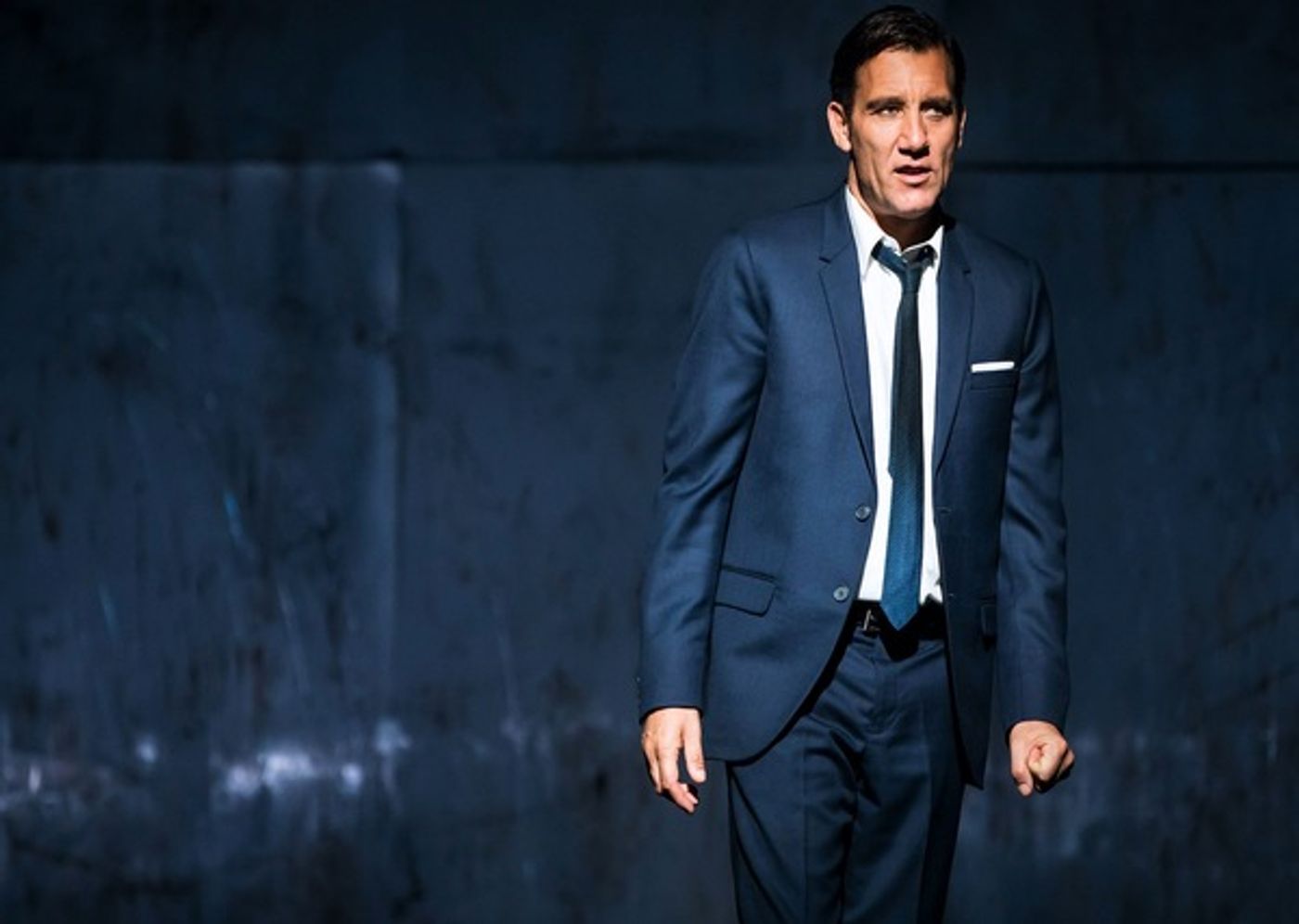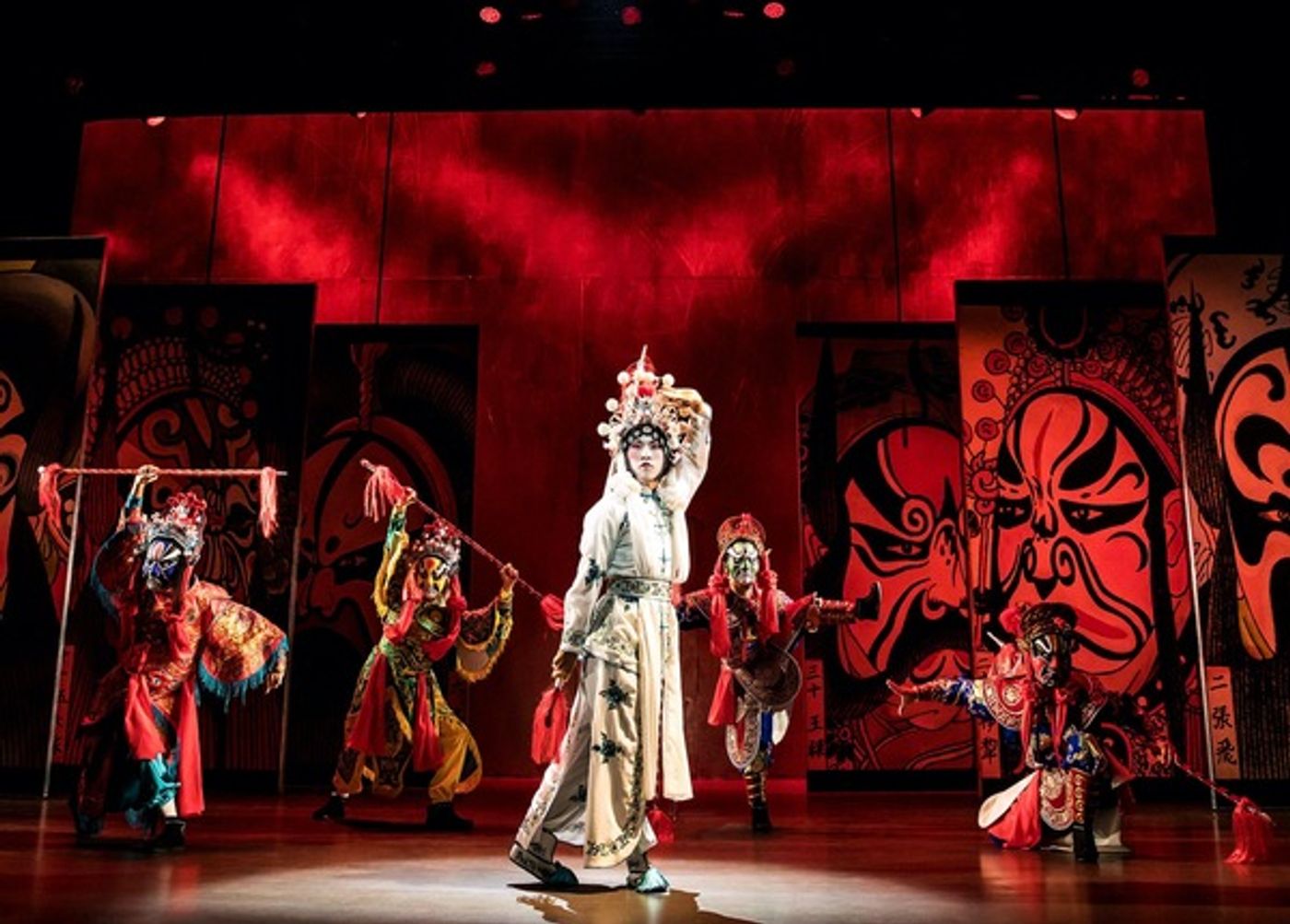Review: Julie Taymor Directs Revised Version of David Henry Hwang's Tony Winner M. BUTTERFLY
When David Henry Hwang's 1988 Best Play Tony-winner M. Butterfly, inspired by the romance between French diplomat Bernard Boursicot and Peking opera singer Shi Pei Pu, who the Frenchman didn't know was a) a Communist spy, and b) a man, first played on Broadway, there was a not so small detail that tended to baffle audience members.

So among the numerous revisions in the new Broadway revival, directed by Julie Taymor, is a monologue, incorporating facts about the case that weren't known at the time, where the performer describes the process by which he adjusted his genitals in order to fool his unwitting lover into thinking he was enjoying vaginal sex. (And no, if you're thinking of the obvious answer, that's not what was going on.)
In any case, Hwang's deceptively beautiful and clever commentary on a particular type of rape culture, one that involves the Western male mindset assuming a dominance over what would be regarded as a feminized (thus, in patriarchal view, weaker) Eastern male, continues to be a thought-provoking drama. Sex may be the selling point, but how cultural norms propagate inadvertent racism and sexism is the issue.
Boursicot was imprisoned in 1986 for passing classified documents to Shi during their affair, which began in 1964 when the diplomat was assigned to the embassy in Peking (as Westerners would refer to the Chinese capital of Beijing at that time). Hwang changes the names to Rene Gallimard and Song Liling, and the details presented in the drama are also mostly the playwright's invention, most significantly, the Frenchman's love for Giacomo Puccini's opera MADAMA BUTTERFLY, which he regards as supremely romantic.
In one of the play's most famous exchanges, Song compares the Eastern view of the opera's story of a beautiful Japanese teenager who makes the ultimate sacrifice for the love of an older American man with what would be a Westerner's view of a story of a young American cheerleader equally obsessed with an older Japanese man. M. Butterfly's story then continues to draw parallels with the classic opera, including Song's pretending to be pregnant with Gallimard's child as a means of escaping China and settling in Paris.

For the situation to be plausible, the audience must see Gallimard as a pathetic figure succumbing to his fantasy of a beautiful, exotic woman who would see him as an impressive model of masculinity. In this revival however, Clive Owen is never convincing, playing a malaise of sadness that lacks complexity, intensity and the foolishness of a man who can only see strength in himself by playing the protector of one he claims to love, but really only objectifies.
Jin Ha gives a fine performance, believably presenting Song as a romanticized version of graceful femininity, while maintaining an archly-humored attitude towards the deluded fantasies of the weak-willed Frenchman. Unfortunately, though, this version omits a showcase moment that originally opened the second act, where Song silently wields his charisma in both female and male garb to seduce the audience.
Julie Taymor's name, of course, has become synonymous with visual splendor, primarily inspired by her encyclopedic knowledge of theatre traditions, particularly puppetry, used by cultures from around the world. Her designs and direction for THE LION KING continue to delight awestruck audiences 20 years after opening, and say what you will about SPIDER-MAN: TURN OFF THE DARK, her fantasy staging was top-shelf.
Working within her concept of a Chinese puzzle box representing how Gallimard's mind recalls the events that led to his demise, set designer Paul Steinberg's work is dominated by a collection of panels that take their sweet time rearranging themselves into different interior formations. As seen in production photos, the visuals look fine up close, but from this reviewer's vantage point towards the rear of the orchestra section, the stage looked underutilized and the production was often swallowed up by the emptiness.
M. BUTTERFLY is a wonderful play about a man's misconceptions about himself and others propelling a fantasy where all his misogynist and culturally perverse dreams come true. In this revival, the drama barely gets a chance to spread its wings.
Reader Reviews
Powered by
|
Videos

